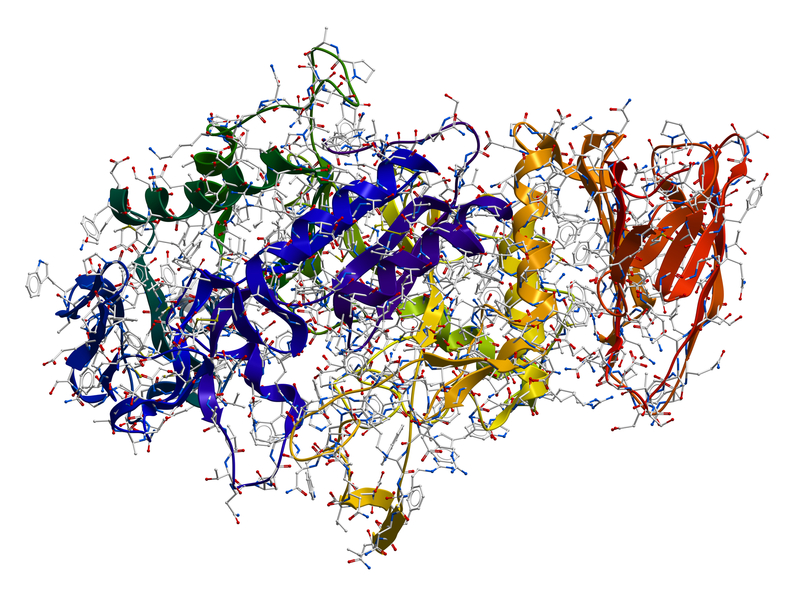
An international team of scientists, led by Prof John McGeehan from the University of Portsmouth, has inadvertently improved an enzyme that helps to break down plastic. Their research was based around a bacterium that was discovered in a rubbish tip in Japan in 2016. The bacterium had naturally evolved an enzyme which enabled it to eat plastic.
 While tweaking the enzyme to find out how it had evolved, the scientists found that the changes they had made enabled the enzyme to break down PET (polyethylene terephthalate) - the plastic used in making drinks bottles - even faster! Although it currently takes a few days to start breaking down PET, the researchers are confident that they will be able to make the enzyme even more effective.
While tweaking the enzyme to find out how it had evolved, the scientists found that the changes they had made enabled the enzyme to break down PET (polyethylene terephthalate) - the plastic used in making drinks bottles - even faster! Although it currently takes a few days to start breaking down PET, the researchers are confident that they will be able to make the enzyme even more effective.
Their eventual aim will be to break down PET into its original components, which would be a huge development, potentially enabling clear PET bottles to be recycled into new, clear PET bottles. Currently, where PET bottles are recycled, they tend to be turned into fibres for clothing and carpets. PET currently makes up about 20% of all plastics produced globally, so making this enzyme really efficient at breaking it down and enabling full recycling would be a game-changer.
There is quite a way to go before the we can use enzymes on a large scale to help us break down and recycle plastics, and we're going to need to be sure that we're not creating a new problem (like creating more greenhouse gas emissions, for example) by solving the existing one of way too much plastic in the environment. But with luck, this encouraging development will lead to a solution to some of our plastic woes.
Image: Alpha-amylase, an enzyme.
